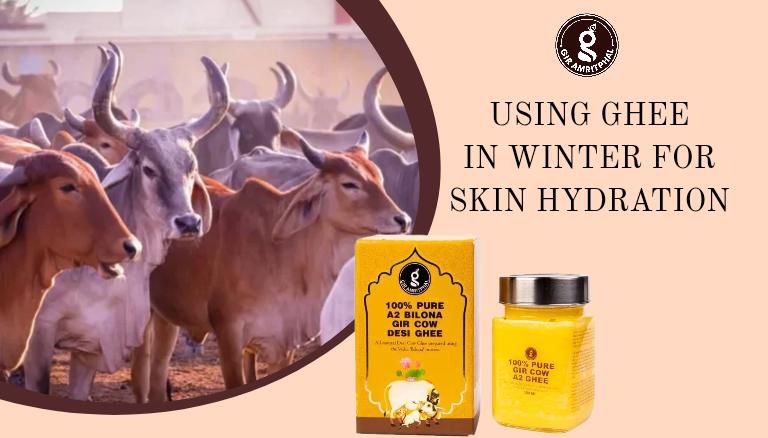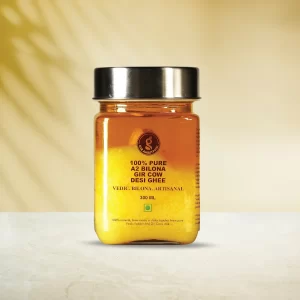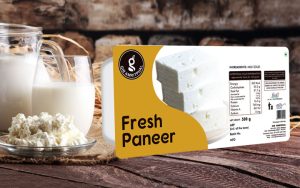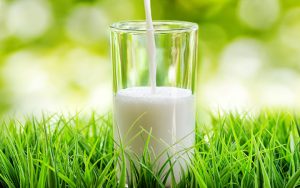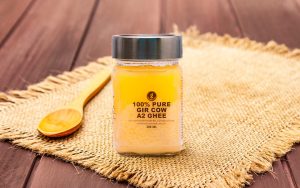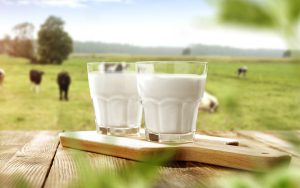Winter often brings dry, itchy, and low humidity.
While many turn to chemical-based creams, more people are now exploring natural solutions. One such remedy gaining popularity is using gir cow ghee in winter for skin hydration.
While commercial moisturizers promise relief, nature offers a simpler, more nourishing solution: ghee.
Gir Cow Bilona Ghee, also known as clarified butter, is a traditional Ayurvedic ingredient rich in vitamins, healthy fats, and moisturizing properties that make it perfect for winter skincare.
How incorporating ghee into your winter skincare routine can transform your skin from parched to radiant.
Using ghee in winter
There is a powerful, time‑tested remedy: pure desi Gir cow ghee, especially from Gir cows, the Bilona method, as offered by Gir Amritphal.
A2 Gir cow Ghee has a warming effect on the body, making it beneficial during winter months to keep the body warm from within.
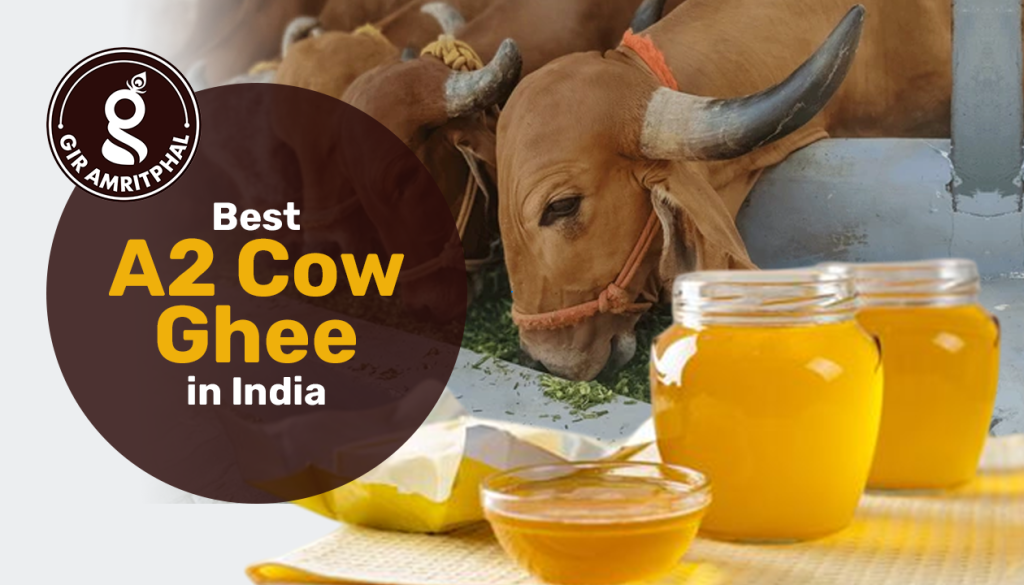
Ayurveda View & Inner Hydration
Ayurveda teaches that skin health depends not only on what you apply, but what you eat.
Ghee is 100% natural, unlike most commercial products containing synthetic additives.
Pair ghee with Ayurvedic herbs like Manjistha for enhanced glow or neem for acne-prone skin.
Consuming a small spoon of pure Bilona Gir cow ghee daily can help support not just skin hydration but overall warmth, immunity & nutrient absorption.
Why Ghee Is Excellent for Winter Skin Hydration
- Rich in Skin‑Nourishing Vitamins:
Vitamins A, D, E, and K are fat‑soluble vitamins abundant in high‑quality ghee.
These nutrients support skin repair, antioxidant protection, and help to reduce irritation and flaking caused by cold air.
- Deep Moisturizing:
In the harsh winter environment, when the skin’s natural barrier is compromised, applying ghee forms a protective seal against moisture loss.
It acts like a natural occlusive agent, keeping skin soft and preventing dryness.
- Natural Glow & Anti‑Aging Support:
Regular application of pure ghee helps brighten dull winter skin.
The antioxidants reduce free radical damage and may slow down the appearance of fine lines and wrinkles.
Its nourishment helps maintain elasticity, leaving skin looking youthful.
- Hydrates and nourishes the skin:
Enriched with moisturising properties, it makes our skin cells feel supple, replenished, moisturised, and is good for all skin types.
Understanding Ghee’s Skin Benefits
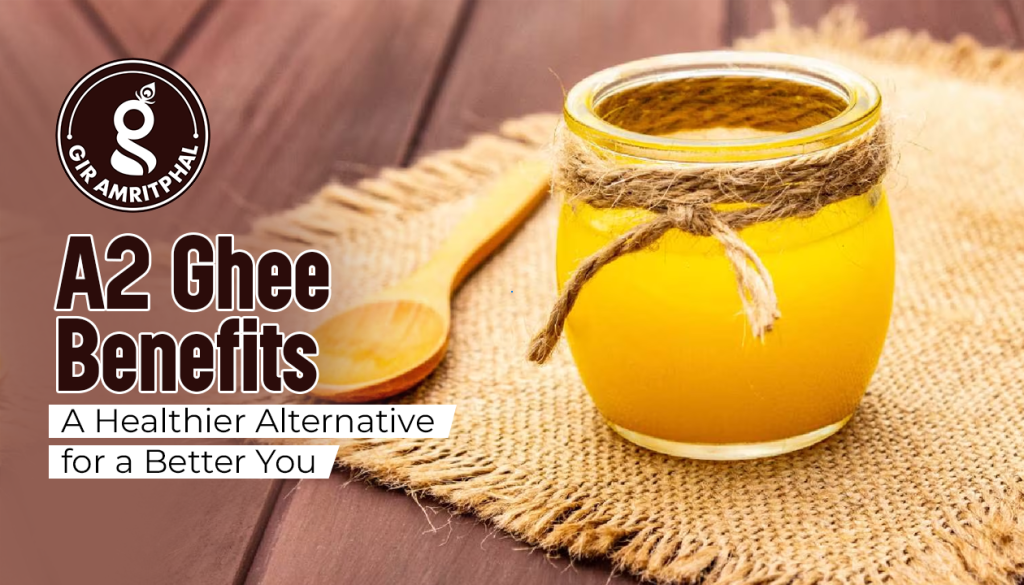
Ghee, especially when sourced from desi Gir cows, is rich in essential fatty acids and vitamins that promote skin health.
Its anti-inflammatory properties help soothe dry, irritated skin, making it an excellent moisturizer during colder months.
Since ghee contains vitamin A and rich fatty acids, it’s a natural moisturizer that helps provide deep, lasting hydration.
Ghee also has a brightening effect on the skin due to the presence of antioxidants, which may help prevent and reduce damage from oxidative stress.
Choosing the Right Ghee
Opt for high-quality, pure desi Gir cow ghee to ensure maximum benefits.
Gir Amritphal offers 100% organic desi Gir cow ghee, produced using traditional methods that preserve its natural properties.
Their commitment to quality ensures a product free from additives, providing you with the purest form of ghee for your skincare needs.
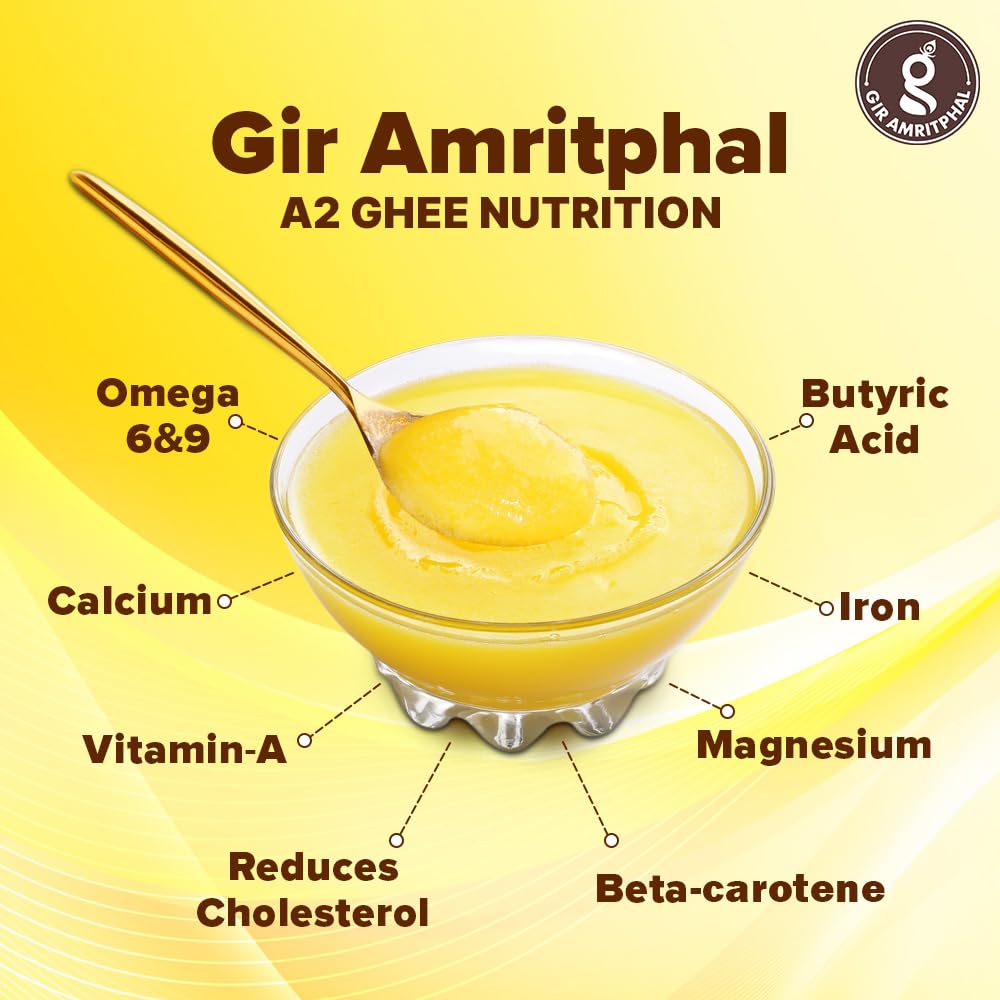
Why Choose Gir Amritphal’s Ghee
At Gir Amritphal, our ghee is sourced from Gir cows, known for A2 milk, Free from chemicals, adulterants, and artificial additives.
Free from chemicals, adulterants, and artificial additives.
Using our Gir Cow ghee in your winter skincare routine can help you maintain supple, radiant skin even in the harshest cold.
FAQs:
Can I use Gir cow ghee on my face every day?
Yes, if your skin is dry to normal. Pure Gir cow ghee like Gir Amritphal’s A2 Bilona cow Ghee is gentle and safe for daily facial use.
However, those with oily or acne-prone skin should use it sparingly and do a patch test first.
How do I apply ghee to my skin during winter?
Gently warm a small amount of ghee between your fingers and massage it into clean, dry skin especially on the face, lips, hands, and heels.
For best results, apply before bedtime and leave it overnight.
Does eating ghee help with skin hydration?
Absolutely! Consuming a spoonful of A2 Gir cow ghee daily can help improve internal hydration, balance the body’s Vata, and give your skin a healthy glow from within.
What makes Gir Amritphal ghee better for skincare?
Gir Amritphal ghee is made using the traditional Bilona method from A2 milk of Gir cows, without chemicals or preservatives.
It retains vital nutrients like vitamins A, D, E, and K that deeply nourish and hydrate the skin naturally.
Is it better to use ghee at night or during the day?
Nighttime is ideal.
Applying ghee before bed allows it to deeply penetrate and nourish the skin while you sleep, helping repair dryness and restore glow by morning.
Can I mix ghee with other natural ingredients for skincare?
Yes! You can mix ghee with turmeric, honey, or gram flour to make face masks or packs that cleanse, brighten, and hydrate the skin naturally.
Does ghee help with chapped lips and cracked heels?
Yes. Ghee is a natural remedy for chapped lips, cracked heels, and rough knees.
Apply a small amount directly to the affected area and leave it overnight for visible healing.
How long does it take to see results from using ghee on skin?
Most people notice softer, more hydrated skin within 3–5 days of regular use.
Long-term use improves skin texture, reduces dryness, and gives a natural glow especially during harsh winters.
Conclusion:
Winter need not mean dull, flaky, uncomfortable skin.
If you’re searching for a natural, effective, and time-tested remedy for dry skin, start using ghee in winter for skin hydration.
This golden elixir not only moisturizes but also heals and revitalizes, giving you healthy, glowing skin all winter long.
For skin that feels nourished, warm, and radiant, let ghee from Gir Amritphal be your seasonal ally.
References:
Using Ghee In Winters: (https://www.ndtv.com/)
Ayurveda View & Inner Hydration: (https://www.ayouthveda.com/)
Why Ghee Is Excellent for Winter Skin Hydration:
(https://timesofindia.indiatimes.com/)
Understanding Ghee’s Skin Benefits: (https://www.healthline.com/)


